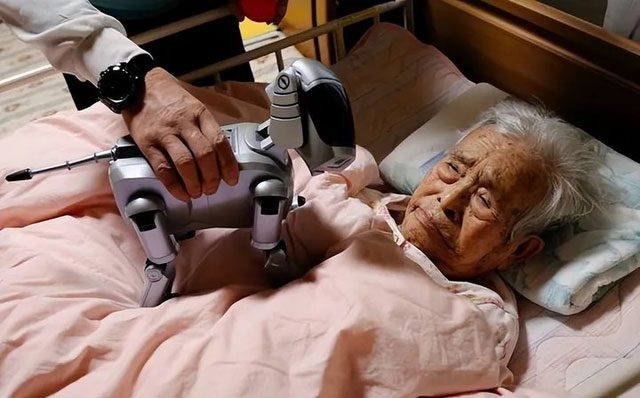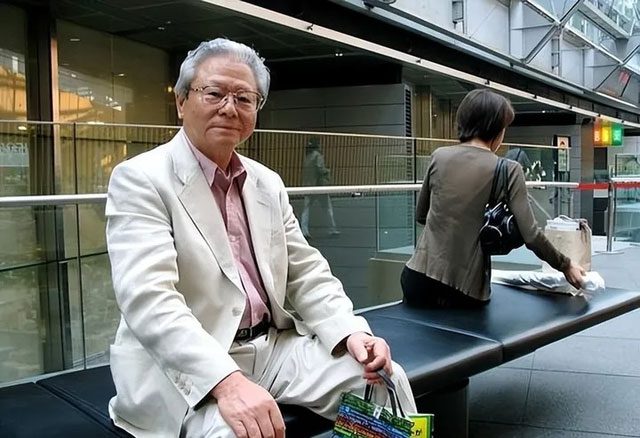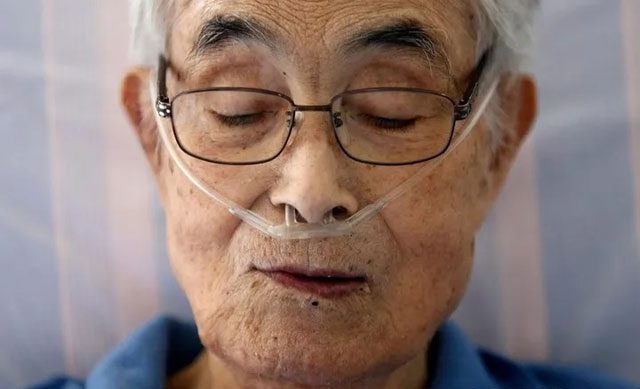This astonishing discovery has shaken the entire scientific community and attracted significant global attention.
The anti-aging effects in a clinical trial from Japan have captivated global interest.
Recently, the results of a clinical trial from Japan have drawn considerable attention worldwide. According to reports, the trial has shown that anti-aging effects may occur, offering a future and endless hope for humanity. This discovery has not only fascinated the scientific community but also sparked a series of discussions about ethics and morality. This groundbreaking research provides us with a new window into life.

CRISPR stands for Clustered Regularly Interspaced Short Palindromic Repeats, essentially a group of DNA sequences found in the genomes of primitive organisms like bacteria and archaea. (Image: Zhihu).
The trial was led by a team of scientists from Tokyo Medical University. They successfully delayed the aging process in laboratory test animals by using a new gene-editing technology, CRISPR-Cas9, to modify genes related to aging. This result has attracted the attention of the global scientific community and further demonstrates the potential for “reversing aging.”
However, the discussions triggered by this discovery also serve as a constant reminder that we need to be cautious about the boundaries of science. Advancing anti-aging technology will likely involve ethical and moral issues. Most people desire to live longer and healthier lives, but we need to set limits and examine this desire critically.
Should extending human lifespan be a widely implemented technology? Balancing the relationship between scientific discovery and ethical principles is a topic that needs urgent discussion.
In any case, the discovery of this breakthrough provides us with an important avenue of thought. Does anti-aging technology mean we can live forever? For this question, we still find it challenging to draw conclusions. However, the results of this trial have given us a perspective to redefine aging and longevity.
For the public, the results of this experiment certainly bring hope and imagination. The stress and anxiety about the health of an aging society are always present in our minds. If we can find ways to allow people to delay aging and address related diseases, the quality of human life would significantly improve.

The CRISPR-Cas9 gene-editing system simplifies the gene-editing process significantly and holds great promise for widespread applications such as stem cell engineering, gene therapy, disease modeling in tissues and animals, and disease-resistant gene transfer techniques. (Image: Zhihu).
However, we also need to recognize that there are no shortcuts in science, especially in the field of biology. Research on anti-aging technology is still in its infancy and requires scientific validation and further safety assessments. While the results of this trial hold great significance for research in the field of anti-aging, we must maintain a rational and cautious attitude.
Elderly Individuals Can Significantly Improve Physical and Cognitive Function by Integrating Multiple Approaches
Physical activity is widely recognized as a vital means of maintaining good health in older adults. Moderate aerobic exercises for seniors, such as walking, jumping rope, and jogging, can not only enhance lung and heart function and improve metabolism but also prevent and improve age-related diseases like hypertension and diabetes.
Additionally, strength training has a marked effect on increasing bone density, helping to prevent osteoporosis in older adults. Studies have shown that exercise can significantly enhance cognitive function in seniors by promoting neurogenesis in the brain, improving memory, concentration, and learning abilities.
Diet also plays a crucial role in the physical and cognitive function of older adults. A balanced diet with appropriate amounts of protein, vitamins, and minerals is essential for maintaining health in older adults. In particular, foods rich in antioxidants, such as vegetables, fruits, and nuts, can reduce oxidative damage to cells in seniors and lower the risk of chronic diseases.
Moreover, adequate intake of DHA (Omega-3 fatty acids) can help improve cognitive function in older adults. Since DHA is a key component of brain function and neurotransmitters, it can promote the growth and development of brain cells.

The CRISPR-Cas9 system greatly simplifies the gene-editing process and holds significant promise for widespread applications such as stem cell techniques, gene therapy, tissue and animal disease modeling, and disease-resistant gene transfer techniques. (Image: Zhihu).
Social interaction also positively impacts physical health and cognitive function in older adults. Participating in social activities can reduce loneliness, depression, and anxiety, improving mental health and thus enhancing cognitive abilities. Maintaining regular contact with family and friends and engaging in community activities and volunteering are effective ways to promote social interaction among seniors. Social activities can not only increase happiness in older adults but also provide continuous cognitive stimulation, maintaining brain flexibility and preventing cognitive decline.
Cognitive training is also an important means of improving cognitive function in older adults. Seniors can activate different brain functions by participating in memory training, solving puzzles, learning new skills, and more. Research has found that regular cognitive training can significantly enhance cognitive function in older adults by improving attention and concentration, boosting information processing, working memory, and flexible thinking.
Anti-Aging Research in an Aging Society Offers New Hope for Healthy Aging
The development of gene technology in recent years has brought significant breakthroughs in anti-aging research. Scientists are working to extend lifespan and slow the aging process by altering or repairing an individual’s genes.
Currently, the most notable technology is CRISPR-Cas9, which can precisely edit the human genome and is expected to achieve major breakthroughs in the field of anti-aging.
These advances in genetic engineering technology provide unprecedented opportunities for healthy aging.

Illustration. Zhihu.
Stem cell research is another direction that has garnered significant attention in the field of anti-aging research. The ability of stem cells to self-renew and differentiate into various cell types holds great potential for treating and reversing the aging process. Researchers are working to harness stem cells to repair damaged tissues and organs to extend healthy longevity. Despite many challenges and ethical issues in stem cell research, its development prospects remain very encouraging.
Immunotherapy, an emerging area of anti-aging research, has shown considerable potential. By modulating the immune system, scientists are trying to slow down or reverse the aging process, thereby increasing the body’s ability to fight disease.
One of the breakthrough outcomes of this method is the emergence of PD-1 immunotherapy. It can activate the body’s immune system, address diseases like cancer, and has shown potential effects in anti-aging research. Advances in immunotherapy are opening new opportunities for healthy aging.
In addition to scientific research, lifestyle changes have proven to be key to healthy aging. A balanced diet, moderate exercise, good sleep, and ample social activities are essential for maintaining good health in older adults.
Scientific studies show that appropriate physical activity can enhance immunity, improve cardiovascular health, and benefit the nervous system; a healthy diet can provide essential nutrients and prevent chronic diseases. By changing their lifestyle, older adults can better combat aging and maintain their physical and mental health.


















































